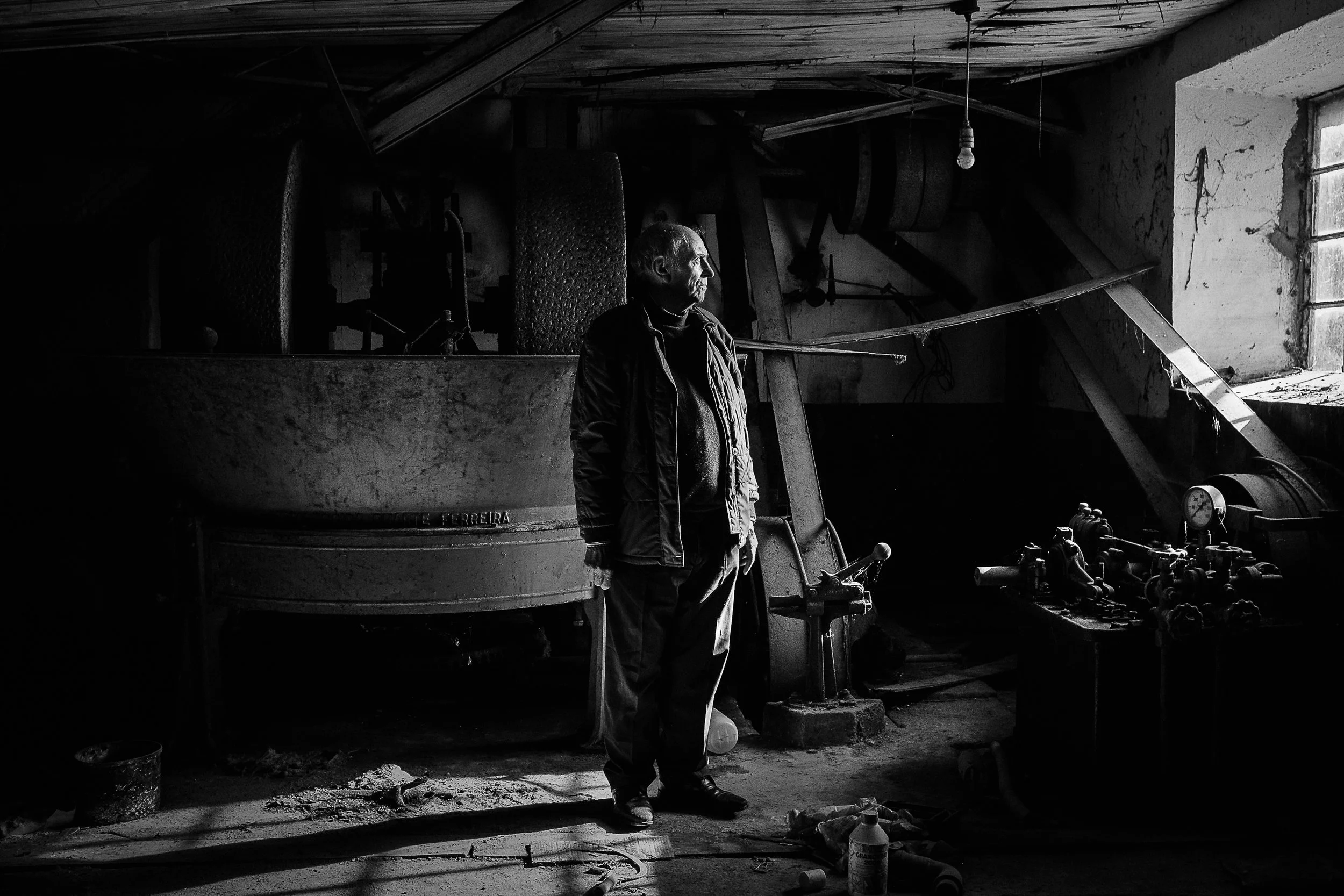Interior
For over fifty years, the Centro Region of Portugal continues to struggle with the widespread depopulation that has hit this territory since the 1960s.
This rural exodus was instigated by the poverty felt during the Estado Novo dictatorship, alongside the already challenging economic conditions of subsistence agriculture. This is a territory of micro-property, infertile soils and unsuitable to mechanisation. The survival of families and social rituals was closely linked to the artisanal production of olive oil, cereals and cheese.
In 1974, with the country’s transition to democracy, the ways of life changed. Among the youth population, those who had not emigrated to central Europe, moved towards the industrialised coast and settled there for better employment opportunities, education and access to services and infrastructures.
Today, the Interior of Portugal is inhabited by an ageing and dispersed population. Rural traditions and popular knowledge are in imminent risk of extinction. The fragmented and economically unviable agricultural sector and the indifference of the lands’ heirs to their own property has led to an unorganised forest growth that plagues the country with uncontrollable wildfires every year. In this particular area, nearly 300 thousand hectares of forest were burned in 2017 and leading to over 100 deaths.
This is a country hidden in plain sight, lost in the forgetfulness of those who dwell far away. Camouflaged and neglected by the power of coastal metropolitan areas. There are still those who continue to call these places home. These are their stories.
Today, 55% of the world’s population live in urban areas.
According to the United Nation’s 2018 Revision of World Urbanisation Prospects, this proportion is expected to increase globally to 68% by 2050. In Europe, merely 16% of the population will live in rural regions by 2050.
"Interior" is an ongoing project on the social, economic and environmental aspects affecting rural areas of Portugal.
This story was a finalist in the LensCulture 2019 Portrait Awards and received a honourable mention at the Andrei Stenin International Press Photo 2019.
In 2020, it received the Estação Imagem Grant.






























